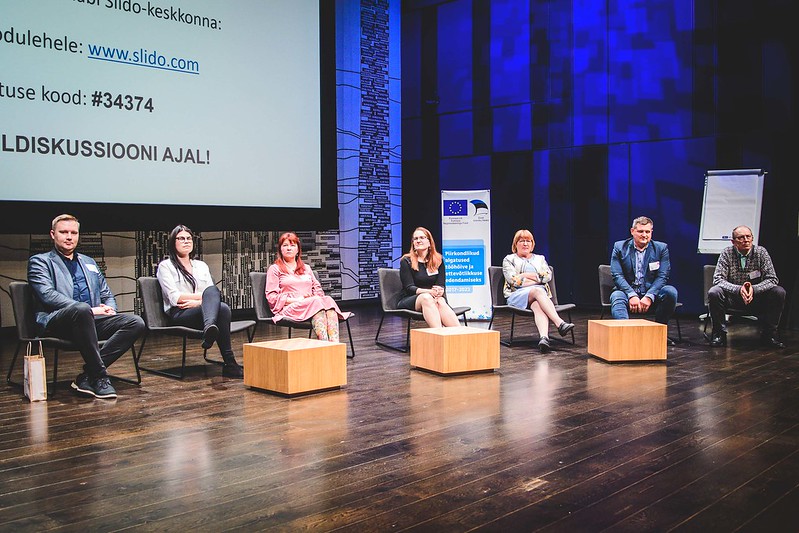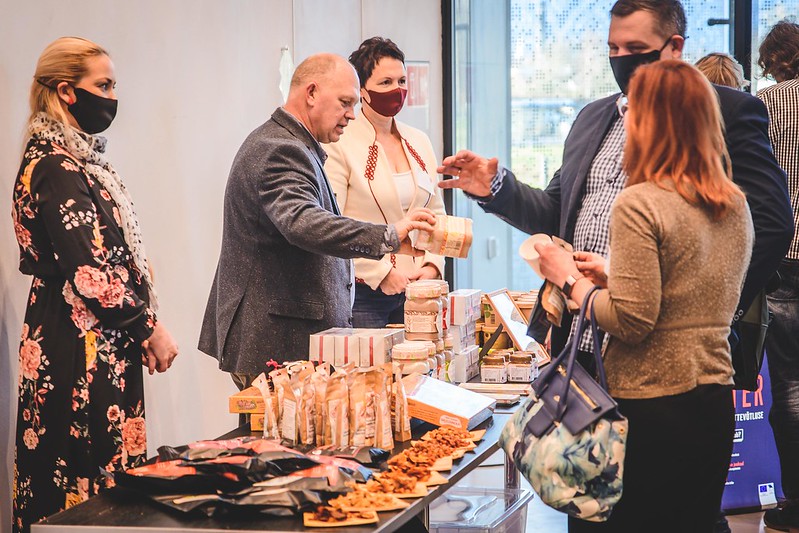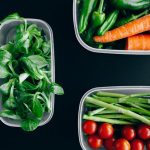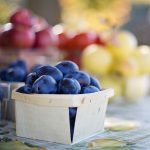 On November 10th, the fourth South Estonian Food Conference took place in Tartu, at the Estonian National Museum. Estonian innovation broker Laura Gredzens had the chance to participate in the event and to hear about the success and challenges of SME-s. More than 90 participants were present, in addition to about 20 virtual participants. It was a very meaningful day, full of exciting performers and performances, including debates and exchange of ideas. Food producers and suppliers had the opportunity to present their products throughout the day.
On November 10th, the fourth South Estonian Food Conference took place in Tartu, at the Estonian National Museum. Estonian innovation broker Laura Gredzens had the chance to participate in the event and to hear about the success and challenges of SME-s. More than 90 participants were present, in addition to about 20 virtual participants. It was a very meaningful day, full of exciting performers and performances, including debates and exchange of ideas. Food producers and suppliers had the opportunity to present their products throughout the day.

The topic of the conference was “Local food in the emergency situation – lessons learned and opportunities taken”. This year’s conference focused on how SME-s survived the emergency situation and what kind of new solutions have been taken into use. It’s visible that the emergency situation had a good impact on some companies, as quick response to an emergency and new innovative solutions are seen as an opportunity for small producers.
Ideas to take from the conference:
- The main solution in an emergency situation where contact with people must be avoided is the creation of different E-platforms, both regional and national. For example, the e-market “Ehtne Taluturg” was created in Estonia, with the aim of helping small producers to sell and market farm goods > https://talutoit.ee/.
- As public events were not allowed to be organized at such difficult times, Mulgi Small Manufacturers Union launched its Mulgi Food Festival online. The fair was organized virtually, where each producer introduced their products online. The fair has collected about 20,000 views on the web so far! > https://mulk.ee/
- Tiina Kuuler, the leader of the Estonian Wine Route, who is the hostess of the wine farm Valgejõe Veinivilla, came out with a new product during the COVID-19 pandemic – a virtual wine tasting. In addition, a wine pop-up shop was set up and wine delivery was offered > www.veinitee.ee.
- The Ministry of Rural Affairs introduced the Baltic Sea Food project. A database of local food and beverage producers is created, which should help business customers to reach them more easily. Entrepreneurs were commenting that for these databases to work, there needs to be more publications on them > https://kohaliktoit.maaturism.ee/.
- Free delivery is a good marketing strategy, but you have to consider, that unfortunately in normal conditions free delivery is not profitable.
- During the crisis, Nopri Farm started the home delivery of its dairy products, called “Weekly milk circle”. Nopri Farm is currently cooperating with the government to find a solution for isothermal parcel machines that are suitable for food > www.nopri.ee.
- In a crisis, customers are buying essentials, luxury goods are left in the background.
- The strengths of Estonian agriculture and the food sector can be considered the rich choice of food products, with a preference for domestic products, and the flexible and exporting food industry.
- The weaknesses of Estonian agriculture and the food sector among other things are low valorization of local raw materials and the relative technological backwardness of the processing industry. About a third of the food sector’s low valorized products are exported, which are mainly raw materials to foreign industries.






